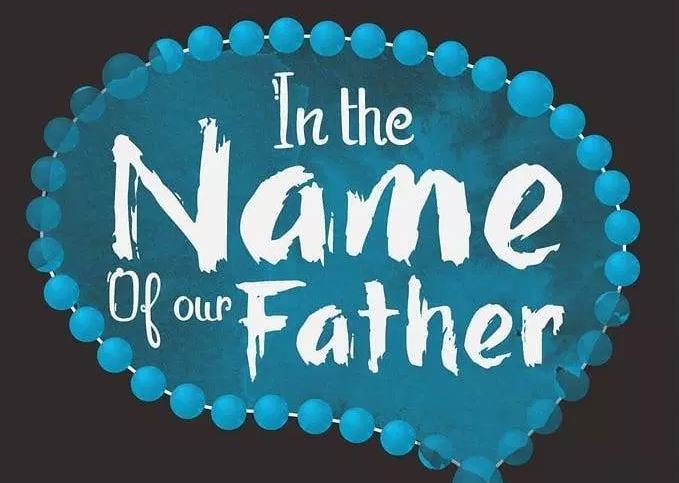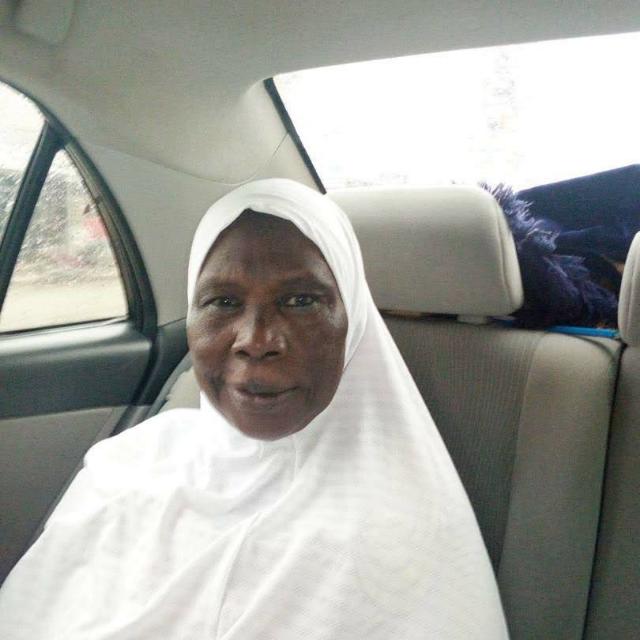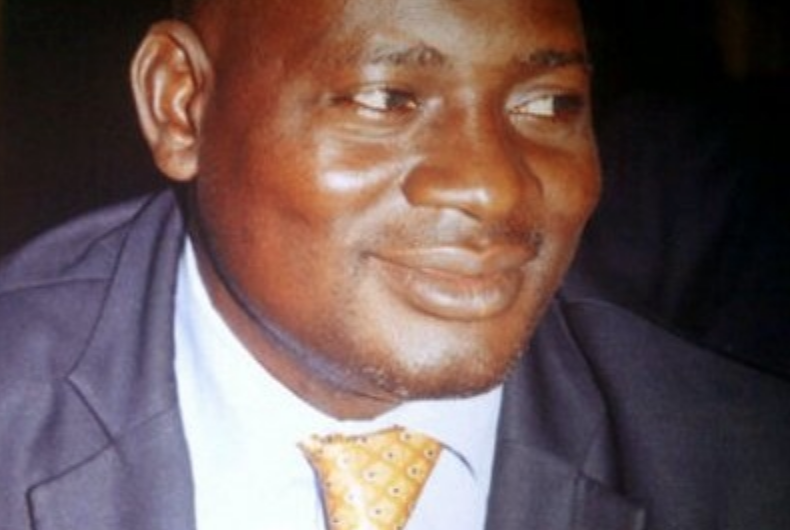BY IBRAHIM MUNIR
As Ngugi wa Thiong’o succinctly puts it, “Literature does not exist in a vacuum; it is given impetus, shape and concern by the social, political and economic forces in a particular society”. Religion as a social matter cannot be divorced from the typical African society because it is part and parcel of the daily life of an African. However, there was a massive shift from the indigenous African traditional religion to either Christianity or Islam after encounter with the Whiteman. Hence, most Africans have either practised their new religion (Christianity or Islam) alongside the traditional African religion or have overstepped the boundaries of the new religion by using it for social and economic advancement.
Writers in Nigeria have over the years explicated religious dynamics in their work and demonstrated how hypocrisy and greed permeate the country’s social and religious affairs.
Olukorede S. Yishau’s novel In the Name of Our Father joins the corpus of Nigerian literature by baring issues that relate to military regimes and thematises religious indoctrination which defined the military government in Nigeria. The narrative is reminiscent of the author’s self-imposed mandate to engage his writing in the socio-political and religious issues that characterise the Nigerian state. In this way, Yishau fictionalises Nigeria in its monumental woes, emphasizing its political and religious drawbacks and making public the meretricious, cynical qualities that define leaders in Nigeria, either politically or religiously. Sourcing materials from the military history of Nigeria, the novelist addresses the characteristic attitudes of men driven by power and selfish interest at the expense of the masses. The author thus seeks the medium of journalism to present cases socio-political scourge on which the Nigerian state thrives. As a human right activist, the novelist uses Justus Omoeko to reveal the animalistic tendencies inherent in the military regimes and how people who raise the consciousness of the masses are unjustly brutalised.
Advertisement
In terms of structure, the novel uses the meta-fiction (story-within-a-story) technique; it contains two narratives: the experiences of a writer and journalist, Justus Omoeko, who is brutalised by military dictators; and the narrative of a dubious pastor, Jeremiah also known as Alani which is encapsulated in the manuscript of Justus Omoeko titled “Angel Live in Heaven.” The novel generally deploys first person narrative to reveal the military disillusionment in the Nigerian society but in the story within the main story, the manuscript “Angels Live in Heaven” delivers the theme of religious indoctrination from the omniscient point of view.
Anderson, L. M and Bateman, T.S opine that social cynicism is “characterised by frustration, hopelessness, disillusionment and distrust in regard to economic or governmental organisations, managers or other aspects of work.” In other words, modern cynicism is a distrust towards professed ethical and social values, especially when there are high expectations concerning society, institutions and authorities that are unfulfilled and it can manifest itself as a result of frustration, disillusionment and distrust perceived as owing to organizations, authorities and other aspects of society. In this way, Yishau’s In the Name of Our Father is saturated by frightening cases of social cynicism manifest in the activities of people.
For instance, Pastor Hezekiah, the resident pastor of Prophet Jeremiah’s church, threatens to leave the church because Prophet Jeremiah collects money from some government officials in order to help them with prayers. Pastor Hezekiah is distrustful or cynical of the government officials and tags them as enemies of the common folks. He believes they are people motivated mainly by greed and ambition. Criticizing the relationship that exists between Pastor Jeremiah and top political officers, Pastor Hezekia narrates thus: “You know, I’ve lost count of men of questionable characters, people in government who are enemies of the common folk who come here for one request or the other. They would bring plenty of blood money and gifts, and their request are granted” (88). This further reveals the cynical attitudes of the political leaders who are driven only by selfish interest.
Advertisement
In the same way, the author’s portrayal of the police force in the text alludes to the cynicism grounded in the system. We know this in the encounters between Justus, an ambitious writer and the police. It can be argued that the activities of the police are shoddy and insincere. This becomes open in the way they attend to criminal scene. The tension suffered by Justus on account of his bid to publish a manuscript “Angels Live in Heaven” disengages the feeling of confidence in the rotten police system. Omoeko has this to narrate after an armed robbery attack: “The police arrived the scene two minutes after the robbers had escaped with their loots, their sirens blaring. The fact that it did not take them long suggested that they were probably watching when the robbers were having a field day” (116). This analysis affirms that the police system is shamefully anchored on principles that encourage corruption and graft. In yet another encounter between Omoeko and some police men on the street, a quite revealing picture of the deception that characterizes many departments of government is given. In a tone reminiscent of discontent, the narrator writes of one of the police who takes bribes: “He started laughing as if they had known each other for years. I felt sorry for my country” (70).
However, Yishau’s In the Name of our Father lays bare the despotism that defines military government. The author thus creates real-life situations using fictional experiences. In more ways than one, General Idoti, the Commander-in-Chief is representative of the holier-than-thou life cherished by military leaders. The narrator thus pokes at his follies and provides convincing instances that validates the claim that most military leaders are self-centered, power-drunk and condescendingly cynical. While revealing this through the characters of Idris Gigolo, the narrator intones:
Luck finally smiled on Idris Gilolo, the secretary to the federal government, who had been trying for no less than 10 days to see General Idoti his boss over the crises going on in Ife-Modakeke and Warri, Gilolo and the Inspector-General had been eager to see the big boss for the purpose of giving him an on-the-spot-assessment of the things in these areas, but the General had been busy attending to no less than 1,000 sorceres and marabouts to spare time for such a little issue as citizens slaughtering themselves far away from Abuja (122).
The above instances that military government is motivated only by a desire for power and that coups are plotted, not to cater for the welfare but to cart away people’s resources. This cynical tendencies of the military leaders are brought out for condemnation in the main story. The story offers an intriguing chance for readers to come to term with the ill-founded reasons behind coup d’etat. It becomes clear that General Idoti is only interested in public fund, not in the welfare of the people. While trying to reveal the cynical attitude of General Idoti and his inexplicable selfishness, General Iya narrates:
Advertisement
Justus, I was just in my office one day when an aide brought me a document showing billions of Naira, which the Head of State had stashed in coded accounts abroad. I was shocked by the discovery. I had been hearing things like that, but I had treated them as rumours. Not even the fact that I read some of these allegations in the media made me believe them. But that document changed my mind and made me thinking (216)
Above all, the narrative contained in the entitled manuscript “Angels Live in Heaven” reeks of various instances of social cynicism. Rebecca, who is used to reveal this scourge, thinks of political leaders as good-for-nothing people. In her interior monologue aptly relayed in the narrative, the hypocritical tendencies of these leaders are condemned. The narrator comments thus: “Rebecca thought of Africa where natural calamities were rarity, where only self-inflicted problems were the source of the numerous calamities befalling the continent, where fellows masquerading as leaders enriched themselves to the point of being in a position to lend money to their countries from which they have stolen” (140). Leaning on this, it is unarguably true that ambition rooted in greed and materialism provides a background to the corrupt tendencies of the leaders. In the creative import of the author, there seems no sincere objective for the leaders’ preference to power.
The existential attitude is depicted in the character of Alani who later transforms to Prophet Jeremiah. According to Flynn Thomas, the existentialist attitude is characterised in the individual starting point by a “sense of disorientation, confusion or dread in the face of an apparently absurd world.” This is seen in the manuscript “Angel Live in Heaven” as the narrative starts with a sense of disorientation. Alani’s sense of confusion in an absurd world is seen when he complains about his existence and his penury: “Olodumare, I see wealth around me, about me, I see the good things of life. I see abundance of them, but why? Why can’t I possess them? I’m tired of this wretched existence, this beggarly existence…” (12). From this, Alani’s state of confusion resonates with the notion of thrownness. Alani is thrown into the world marooned in confusion. A series of events unfolds.
The death of Alani’s son, Lekan, obfuscates his situation. This also makes him divorce his wife and take up a new life defined by outrageous ambition. Thinking of his life and the need to start his life afresh, Omoeko intones about Alani: “By the time the cocks started crowing, he had made up his mind that he was going to ask Abeke to go away, while he would try to start life afresh in a new land” (25). In this regard, the notion of existentiality notes that it is when one grasps the reality of one’s environment that one truly survives. Hence Alani meets Pastor David to show him the way-out. In a tone rife with strong conviction, Alani says: “So, I’ve reached a decision to start a new life… I want to put it behind me by staying with you and doing the kind of job you do” (29). The notion of existentiality is seen as Alani learns the kind of diabolic gospel that Pastor David engages in. subsequently, Alani is initiated and changes his name to Prophet Titus Cornelius Jeremiah. The change of name is crucial as it depicts the fact that Alani is fully transformed and has been able to carve a niche for himself in the world. The narrative shows that Alani starts gaining prominence and begins to be recognized by the “high and mighty” (78).
Advertisement
However, the notion of fallenness quickly catches up with Alani who is now Prophet Jeremiah. In the narrative his excessive love for materialism as he continues to scheme on ensnaring the power-thirsty Head of State General Idoti under the guise of providing spiritual counseling. The narrative goes: “He was not bothered about the morality of what he was about to do. After all, the money belonged to Nigerians and he was a Nigerian!” (113). This excessive love for materialism contributes to his downfall, and as Heidegger opines, “Materialism is one of the things that results in the loss of our true essence.” And the quest for materialism and his deceitful nature lands Prophet Jeremiah in the Psychiatric Hospital in Aro, Abeokuta.
The various issues such as materialism, hypocrisy, greed on the part of political and religious leaders, etc. reinforce socio-religious cynicism in Olukorede’s Yishau’s In the Name of Our Father. In a fictional form, Yishau digs into socio-political cynicism exacerbated by hypocrisy and greed. Without mincing words, the novel dramatises the material benefits that underlie social, political and religious practices in today’s Nigeria
Advertisement
Views expressed by contributors are strictly personal and not of TheCable.






